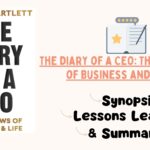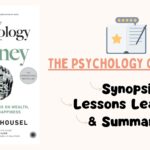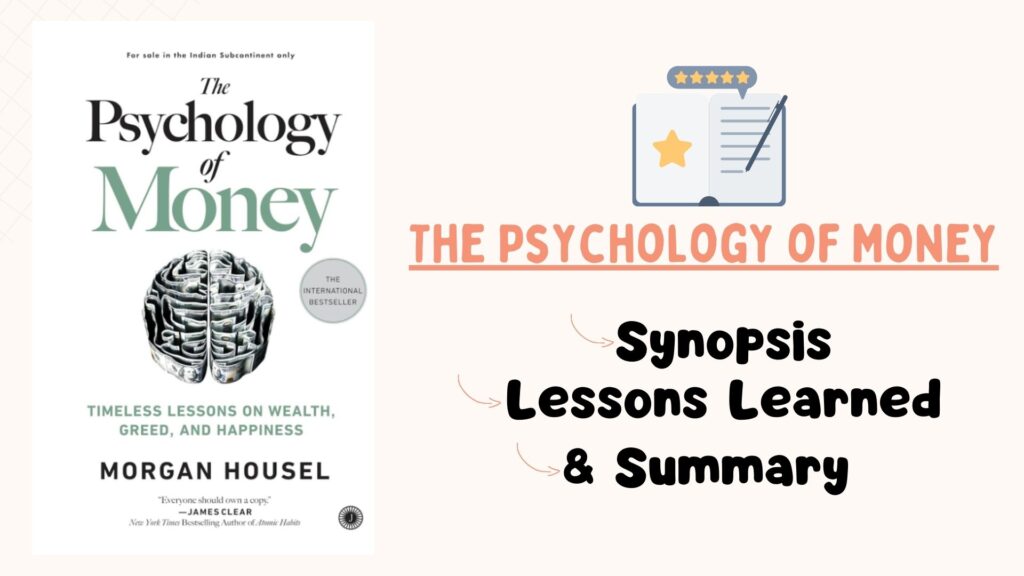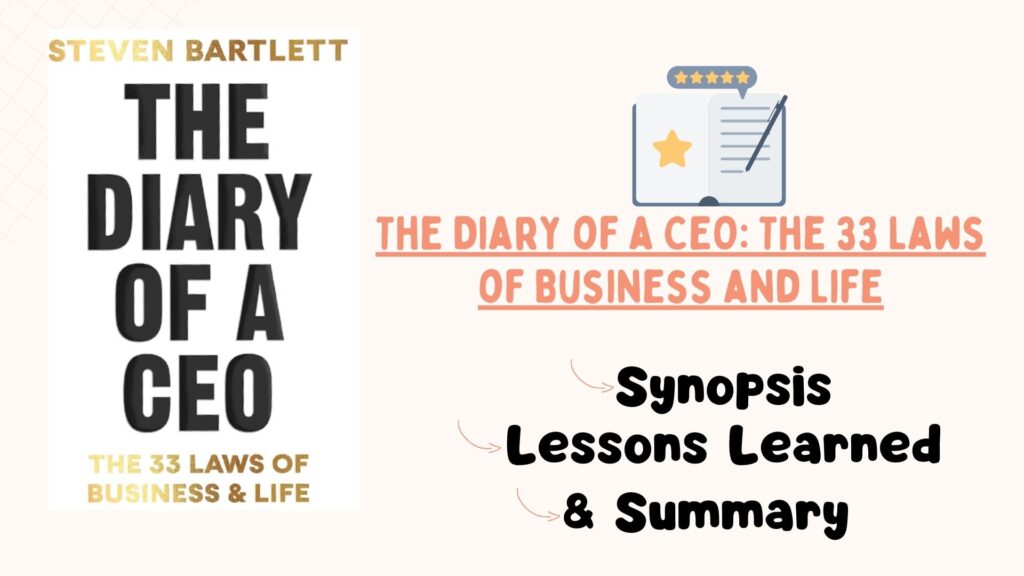Delving into the pages of Morgan Housel’s “The Psychology of Money” is a thought-provoking journey that unveils the complex relationship between human psychology and financial decision-making. As I immersed myself in the wealth of insights and wisdom, I gained a profound understanding of the intricate and often irrational nature of money management. Housel’s succinct yet powerful narrative offers compelling anecdotes and timeless principles that illuminate the psychological factors influencing our financial behaviors. This book serves as a guiding beacon through the maze of our financial mindset, shedding light on the profound impact of human emotions, biases, and perceptions on our money habits.
From the intricacies of risk perception to the power of compounding, Housel’s compelling exploration of money psychology transcends the realms of traditional finance literature. With a blend of behavioral economics and real-life experiences, “The Psychology of Money” is a trailblazing work that challenges conventional wisdom and prompts introspection into our own financial thought processes. Through this profound literary work, readers are not only empowered to navigate the complexities of personal finance, but also gain valuable insights into the psychology behind wealth accumulation and preservation. Join me as I unravel the profound lessons and timeless wisdom that “The Psychology of Money” has to offer.
Key Takeaways:
- Behavioral finance: The Psychology of Money explores how human behavior and emotions drive financial decisions, often leading to irrational and unpredictable outcomes.
- Long-term mindset: One of the crucial lessons is the importance of long-term thinking in building wealth and making sound investment decisions, rather than succumbing to short-term impulses.
- Uncertainty and risk: The book delves into the concept of uncertainty and how embracing risk is an essential part of achieving financial success, as no investment comes without an element of uncertainty.
- Personal finance lessons: Housel shares invaluable personal finance lessons, emphasizing the significance of simplicity, frugality, and the understanding that money is a tool to help achieve a desired lifestyle.
- Investor psychology: By exploring the psychology behind investing, the book offers valuable insights into how to navigate market fluctuations, avoid common pitfalls, and maintain a disciplined approach to wealth management.
The Illusion of Rational Finance
Assuming that finance is purely rational is a common misconception. In reality, finance is deeply influenced by the irrational and unpredictable nature of human behavior.Even the most experienced investors are susceptible to biases and emotions that can lead to suboptimal decision-making.
The Role of Emotions in Financial Decisions
To understand the role of emotions in financial decisions, it’s crucial to recognize that humans are not always rational beings, especially when it comes to money. Emotions such as fear, greed, and overconfidence can significantly impact investment choices and lead to irrational decision-making. These emotional biases can cause investors to buy high and sell low, chasing after short-term gains and neglecting long-term financial goals.
Case Studies on Financial Irrationality
Studies have shown that financial irrationality is pervasive and can manifest in various ways. Here are some case studies that exemplify this phenomenon:
- An analysis of investor behavior during market downturns, which revealed a widespread panic selling of assets.
- Research on the influence of social trends on investment decisions, demonstrating the impact of herd mentality on financial markets.
- An examination of the impact of anchoring bias on pricing decisions, highlighting the irrational attachment to specific reference points.
Case studies on financial irrationality provide valuable insights into the complexities of human behavior and the impact on financial decision-making. Understanding these irrational tendencies is crucial for building resilient investment strategies and promoting financial well-being.
Wealth vs. Riches: Understanding the Difference
Even though the terms “wealth” and “riches” are often used interchangeably, they actually refer to two distinct concepts in the realm of finance and psychology. Understanding the difference between the two can have a profound impact on how we approach money and financial decisions.
The Concept of Enough
On the surface, the pursuit of riches may seem like the ultimate financial goal. The accumulation of material possessions and a high net worth can be enticing, but it often comes with a never-ending desire for more. On the other hand, wealth is not simply about having an abundance of resources, but rather, it involves the realization of “enough.” It’s the understanding that true wealth lies in having adequate resources to live a fulfilling life without constantly chasing after more.
On the psychological level, the concept of “enough” is deeply rooted in contentment and gratitude. When we shift our focus from amassing riches to achieving wealth, we can cultivate a sense of satisfaction with what we have, leading to greater peace of mind and overall well-being.
Wealth as a Means to Freedom
With wealth, the pursuit is not just about amassing material possessions or a large bank account. Instead, it serves as a means to attain freedom – the freedom to make choices that align with our values and goals, the freedom to pursue our passions, and the freedom to live life on our own terms. Wealth provides the opportunity to create a life of abundance beyond just monetary wealth, including time, experiences, and meaningful connections.
It’s important to recognize that wealth is not solely about the amount of money one possesses, but rather the ability to use those resources to create a fulfilling and purposeful life. This shift in perspective can lead to a more intentional and meaningful approach to building wealth, one that goes beyond mere accumulation and focuses on the true value that wealth can bring to our lives.
It is essential to understand the distinction between wealth and riches, as it can significantly shape our financial decisions and ultimately our overall well-being. By embracing the concept of “enough” and recognizing wealth as a means to freedom, we can cultivate a healthier relationship with money and work towards a more fulfilling and purposeful life.
The Seduction of Compounding
Despite the seemingly mundane nature of the concept, compounding is one of the most powerful forces in the universe. It is the ability of an asset to generate earnings, which are then reinvested in order to generate their own earnings. This snowball effect, when given enough time, can lead to staggering results that defy intuition. Understanding and harnessing the power of compounding is crucial for anyone seeking to build long-term wealth and financial security.
The Magic of Compounding Returns
Compounding returns is not just a theoretical concept – it has real, tangible implications for investors. By reinvesting the earnings generated by their investments, individuals can accelerate the growth of their wealth exponentially over time. This is particularly evident in the world of stock market investing, where a small initial investment can grow into a substantial sum over the course of several decades, thanks to the power of compounding.
Real-world investors like Warren Buffet and Peter Lynch have attributed a significant portion of their success to the power of compounding returns. Their ability to patiently reinvest earnings and let them grow over time has resulted in exponential wealth creation that has made them legends in the investing world. These examples serve as a powerful reminder of the potential that compounding holds for those who harness it wisely.
Real-World Examples of Compounding at Work
Returns from compounding can be seen in a myriad of real-world examples, from the growth of individual retirement accounts to the rise of successful businesses. By reinvesting profits and allowing them to generate further returns, individuals and companies can see their wealth grow exponentially over time. This phenomenon is not limited to financial assets – it can also be observed in areas such as career growth and personal development, where small, consistent efforts can lead to significant achievements over the long run.
Getting Wealthy vs. Staying Wealthy
Unlike what many people believe, getting wealthy and staying wealthy are two entirely different challenges. While getting wealthy often involves taking on higher levels of risk and potentially volatile investments, staying wealthy requires a different set of skills, such as risk management, preservation, and discipline.
Strategies for Building Wealth
On the journey to building wealth, it’s important to focus on long-term strategies rather than quick wins. This means investing in a diversified portfolio, consistently saving and investing, and avoiding the temptation to chase after the latest hot stock or market trend. Building wealth is a marathon, not a sprint, and it’s crucial to maintain a disciplined approach and a long-term mindset.
Furthermore, it’s important to be mindful of the impact of fees and taxes on investment returns. High fees and unnecessary tax liabilities can eat away at investment gains over time, so it’s essential to carefully consider these factors when building wealth.
The Importance of Preservation and Risk Management
Strategies for preserving wealth and managing risk are equally important as strategies for building wealth. While it’s natural to focus on potential gains, it’s equally crucial to protect what has already been accumulated. This involves diversifying assets, setting up an emergency fund, and having appropriate insurance coverage.
Building a buffer against unexpected events, whether they are personal or financial, is key to staying wealthy in the long run. Additionally, managing downside risk and avoiding large losses can be just as important as capturing upside potential. This can be achieved through careful asset allocation, risk assessment, and maintaining a long-term perspective.
The Role of Luck and Risk in Financial Success
Not everyone achieves financial success through the same means. In fact, luck and risk play essential roles in determining an individual’s financial standing. Understanding the interplay between luck and risk is crucial to making informed decisions about personal finance and investing.
Understanding Luck and Effort in Achievements
The concept of luck often gets overlooked when discussing achievements, especially in the financial realm. Many successful individuals attribute their success solely to hard work and effort, underestimating the role luck played in their accomplishments. However, luck can significantly influence one’s financial journey, from inheriting money to being in the right place at the right time. Acknowledging the role of luck doesn’t diminish the effort and skills required for success, but rather provides a comprehensive understanding of the factors at play. Recognizing the impact of luck can foster humility, gratitude, and a realistic perspective on financial achievements.
Navigating Uncertainties in Personal Finance
Finance is inherently uncertain, and navigating these uncertainties is integral to achieving financial success. Risk is an inherent part of financial decision-making, and understanding how to manage and mitigate it is essential. Diversification, asset allocation, and risk assessment are strategies that can help individuals navigate the uncertainties of personal finance and make informed investment choices. Embracing risk as a component of financial growth, rather than fearing it, can lead to more calculated and rewarding financial outcomes.
Achievements, luck, risk, personal finance, investing, decision-making, diversification, asset allocation, financial outcomes.
The Power of Stories in Financial Decisions
Your financial decisions are often guided by the narratives you hear and the stories you tell yourself. These stories shape your beliefs about money, risk, and investing, influencing the choices you make. Understanding the power of stories is essential for making wise financial decisions.
How Narratives Drive Major Financial Trends
On a macro level, the stories we tell about the economy and the stock market can drive major financial trends. The narratives of market booms and busts, economic growth or recession, shape investor behavior and ultimately impact market movements. These stories can create self-fulfilling prophecies, as investor actions based on the narrative end up reinforcing the narrative itself.
On an individual level, personal finance stories influence the way people approach saving, investing, and spending. The stories we hear from family, friends, and the media shape our beliefs about wealth and influence our financial behaviors. These narratives can lead to both positive and negative financial outcomes for individuals.
The Danger of Investment Fads
Trends in investment fads are often driven by compelling narratives that capture the imagination of investors. However, these fads can lead to irrational exuberance and unsustainable market bubbles. The stories of quick riches and fear of missing out can lure investors into speculative investments that may not be grounded in sound financial principles. Understanding the dangers of investment fads is crucial for avoiding costly mistakes.
Financial decision-making based on fleeting narratives and investment fads can lead to significant losses and undermine long-term financial security. By recognizing the influence of stories in financial decisions, investors can develop a more rational and disciplined approach to managing their money.
The Importance of Financial Humility
After reading ‘The Psychology of Money’ by Morgan Housel, one of the key takeaways is the importance of financial humility. It’s a concept that, when applied, can have a profound impact on our decision-making and overall financial well-being.
Recognizing the Limits of Our Financial Knowledge
On the journey to financial success, recognizing the limits of our financial knowledge is crucial. We live in a complex and ever-changing financial world, and it’s impossible for any one person to be an expert in every aspect. Accepting this fact allows us to approach financial decisions with a sense of humility, leading us to seek advice and guidance when necessary. This can help us avoid costly mistakes and make more informed choices, ultimately leading to better financial outcomes.
Adapting to Ever-Changing Financial Landscapes
For individuals seeking to build and preserve wealth, adapting to ever-changing financial landscapes is essential. Markets fluctuate, economies evolve, and new financial products and technologies emerge. Being humble enough to acknowledge that we don’t have all the answers empowers us to embrace change and continuously learn and adapt. This agility is a key component of long-term financial success, allowing us to pivot when necessary and capitalize on new opportunities that arise in the financial world.
Landscapes, financial humility, financial knowledge, adapting, decision-making, financial success, complexity, guidance, financial outcomes, wealth, markets, economies, financial products, technologies, agility, learn, opportunities.
Financial Freedom and Happiness
To achieve financial freedom is the ultimate goal for many individuals. The idea of having enough wealth to live the life you desire and not be reliant on a paycheck brings a sense of security and peace of mind. The relationship between money and happiness has been a topic of debate for decades. In his book, ‘The Psychology of Money’, Morgan Housel delves into this intriguing connection and sheds light on the psychological impact of finances on well-being.
How Money Influences Well-being
One of the most fascinating aspects of the relationship between money and well-being is the concept of adaptation. Humans are remarkably adaptable creatures, and this holds true for financial circumstances as well. Whether it’s a sudden windfall or a devastating loss, individuals tend to adapt to their new financial situation over time. This phenomenon has significant implications for how money influences overall well-being and happiness. Housel’s book presents thought-provoking insights into the psychology behind this adaptation and its impact on our perception of wealth.
Furthermore, the book explores the notion of financial freedom and its correlation with psychological well-being. It highlights the importance of aligning one’s financial goals with personal values and aspirations. While money can provide a sense of security and freedom, Housel emphasizes that true happiness stems from a deeper understanding of our relationship with wealth and the role it plays in our lives.
The Relationship Between Money and Life Satisfaction
Influences on life satisfaction is another crucial aspect of the connection between money and happiness that Housel delves into. The book delves into the complexities of how money impacts various facets of life satisfaction, including relationships, health, and overall contentment. It emphasizes that while money can provide opportunities and comforts, it is not the sole determinant of happiness. The Psychology of Money presents a compelling argument for redefining our relationship with wealth and evaluating its impact on our well-being in a holistic manner.
To quote Housel, “Understanding the relationship between money and life satisfaction is essential for achieving true financial freedom and happiness.”
Practical Advice for Personal Finance
Keep in mind that personal finance is a crucial aspect of everyone’s life. It is essential to understand the basics of managing money to achieve financial stability and security. In his book, ‘The Psychology of Money’, Morgan Housel provides valuable insights on practical advice for personal finance that can help individuals make informed decisions and cultivate healthy financial habits.
Saving: The Foundation of Financial Health
The cornerstone of personal finance is saving. It is crucial to prioritize saving a portion of your income regularly to build a financial cushion for unexpected expenses and future goals. Housel emphasizes the significance of saving as the foundation of financial health. By consistently setting aside a portion of your earnings, you can create a safety net and work towards achieving your long-term financial objectives.
Investment Strategies for the Average Person
Average individuals can implement simple and effective investment strategies to grow their wealth over time. Housel’s insights shed light on the power of long-term investing and the benefits of compounding returns. By diversifying investments, staying informed about the market, and avoiding emotional decision-making, the average person can build a robust investment portfolio.
Saving and investing go hand in hand, and it is essential to strike a balance between the two to achieve financial well-being. By prioritizing savings and making wise investment choices, individuals can secure their financial future and work towards achieving their goals.
Tips for Avoiding Common Financial Pitfalls
Advice for avoiding common financial pitfalls includes maintaining a budget, avoiding high-interest debt, and being cautious about financial decisions. Additionally, creating an emergency fund, staying informed about personal finance, and seeking professional advice when necessary are crucial steps toward avoiding financial pitfalls. This ensures that individuals are well-prepared to navigate through unexpected challenges and secure their financial well-being.
- Maintain a budget
- Avoid high-interest debt
- Seek professional advice when necessary
For instance, maintaining a budget helps individuals track their expenses and identify areas where they can save money. By avoiding high-interest debt, individuals can prevent financial burdens that hinder their long-term financial goals. Seeking professional advice when necessary ensures that individuals have access to expert guidance and tailored solutions to their financial concerns.
Final Words
Now that we have delved into the intricacies of ‘The Psychology of Money’ by Morgan Housel, it is clear that the book offers valuable insights into the complex relationship between finance and human behavior. Through insightful anecdotes and research-backed arguments, Housel provides a nuanced understanding of the psychological aspects that influence our financial decisions. His exploration of the cognitive biases, emotional triggers, and societal pressures that impact our financial choices offers a refreshing perspective on money management.
Moreover, the book emphasizes the importance of patience, resilience, and humility in the pursuit of financial success, offering practical advice that is applicable to anyone, regardless of their financial acumen. Readers are encouraged to embrace a long-term mindset and prioritize understanding their own relationship with money, rather than chasing quick gains or succumbing to societal pressures. Overall, ‘The Psychology of Money’ serves as an essential guide for individuals seeking to develop a healthier, more mindful approach to their finances.
FAQ
Q: What is “The Psychology of Money” by Morgan Housel about?
A: “The Psychology of Money” delves into the behavioral and psychological aspects of managing money, exploring the impact of human nature on financial decisions and outcomes.
Q: What are the key takeaways from “The Psychology of Money”?
A: The book emphasizes the importance of understanding one’s relationship with money, the impact of personal biases and emotions on financial decision-making, and the value of long-term thinking in wealth accumulation.
Q: How does “The Psychology of Money” explain the role of luck in financial success?
A: Housel discusses the significant influence of luck in financial success, highlighting how it often goes unrecognized or attributed to personal skill, and the implications of this recognition on humility and empathy.
Q: What lessons does “The Psychology of Money” offer about risk and uncertainty in investing?
A: The book explores the concepts of risk and uncertainty in investing, emphasizing the need to distinguish between the two and the importance of managing emotional responses to market fluctuations.
Q: How does “The Psychology of Money” address the concept of wealth and happiness?
A: Housel examines the relationship between wealth and happiness, challenging conventional notions of wealth accumulation and highlighting the significance of financial security and peace of mind in achieving true happiness.










